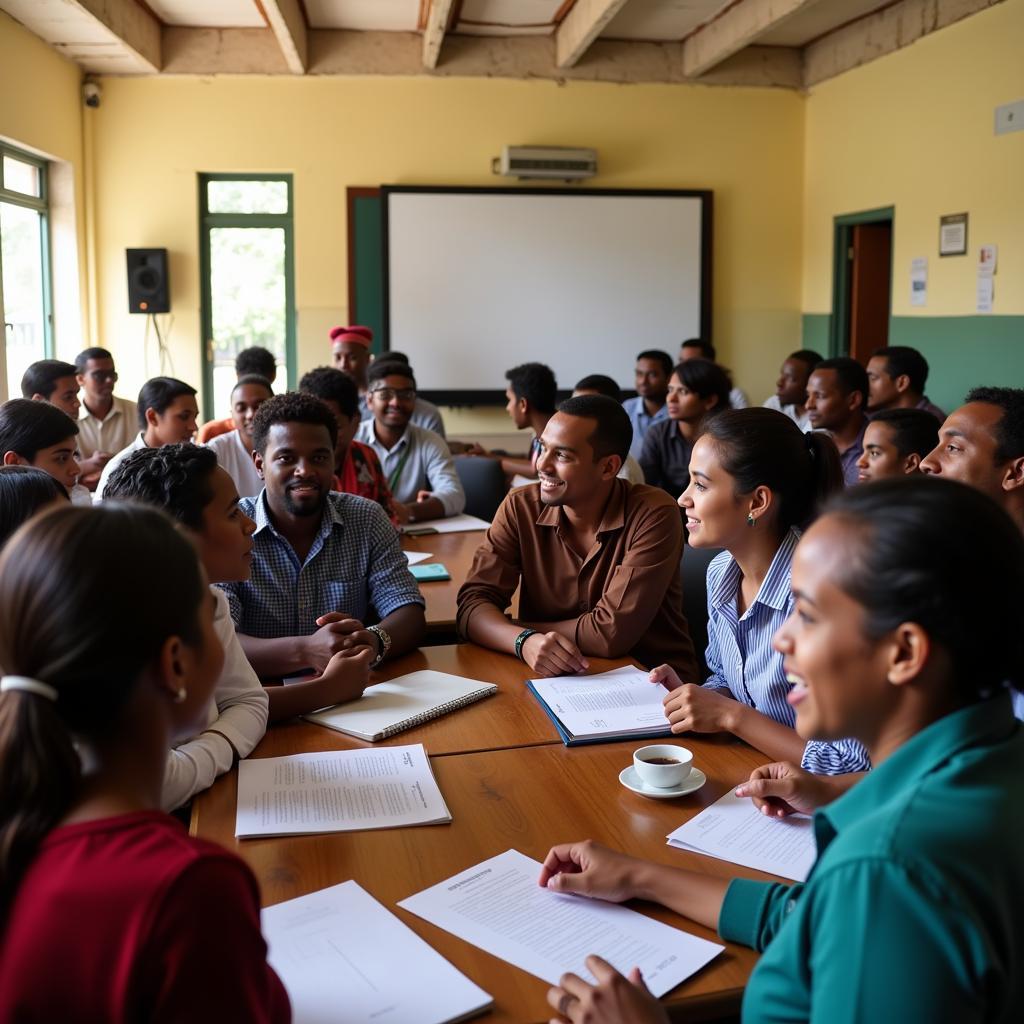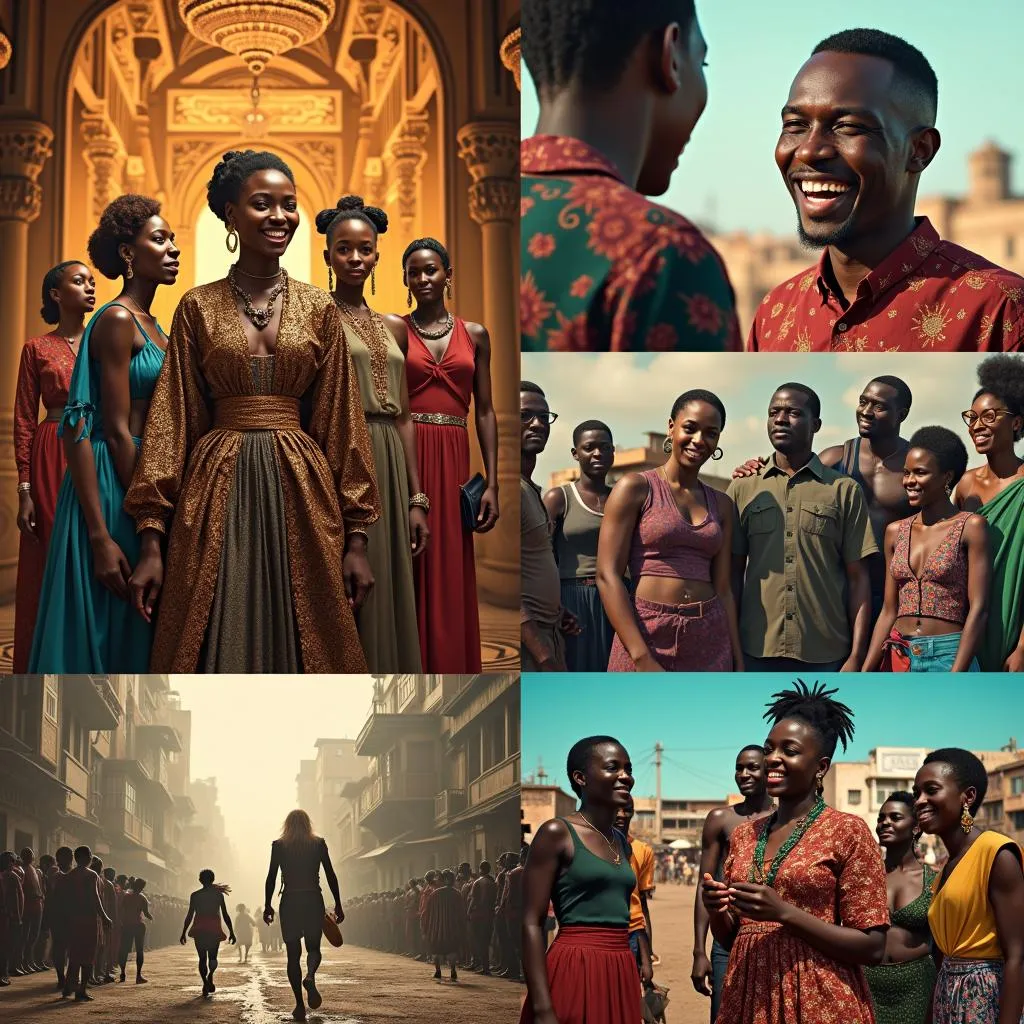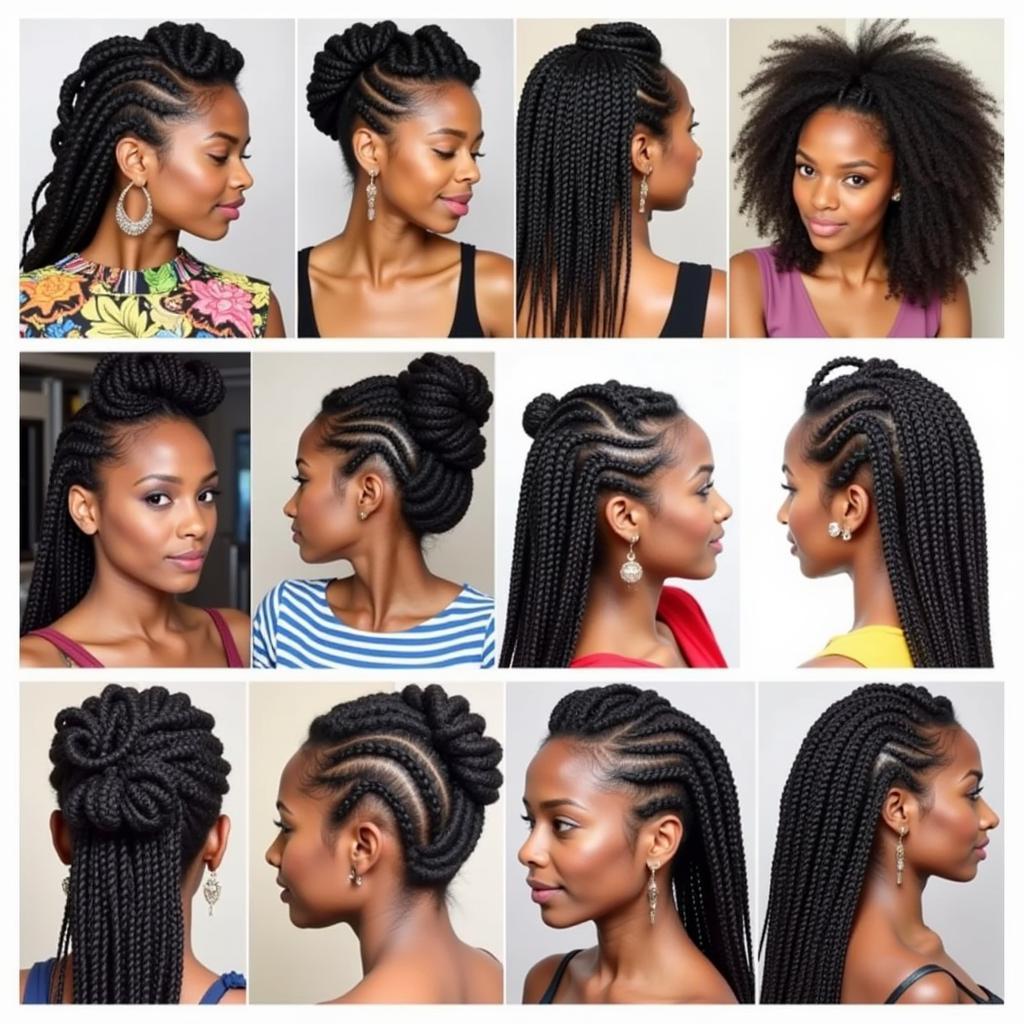Experience the Vibrant Pulse of the African Dance Club Scene
The African Dance Club scene is a vibrant tapestry of rhythms, movements, and cultural expressions. From pulsating Afrobeat to soulful Highlife and hypnotic Kwaito, these clubs offer a unique window into the heart and soul of Africa. They’re not just places to dance; they’re spaces where communities connect, traditions are celebrated, and stories are told through the universal language of music and movement. Let’s delve into this exhilarating world and discover the magic that awaits within. For those seeking an authentic Moroccan experience, check out the african dance club morocan.
The Rhythms that Move a Continent: Exploring African Dance Club Music
African dance club music is incredibly diverse, reflecting the vast array of cultures and traditions across the continent. Each region boasts its own unique sounds and styles, creating a rich musical landscape that is constantly evolving. While genres like Afrobeat, pioneered by the legendary Fela Kuti, have gained international recognition, numerous other styles continue to thrive in local clubs, offering a truly authentic experience. From the energetic Coupé-Décalé of Ivory Coast to the captivating Bongo Flava of Tanzania, the music of African dance clubs is a testament to the continent’s creative spirit.
What makes African dance club music so captivating? It’s the infectious rhythms, the soulful melodies, and the powerful messages often embedded within the lyrics. These songs tell stories of love, loss, struggle, and triumph, resonating deeply with those who hear them.
Beyond the Beat: The Cultural Significance of African Dance
Dance in Africa is far more than just entertainment; it’s a powerful form of expression deeply intertwined with cultural identity, spirituality, and social interaction. Many dances have ancient roots, passed down through generations and carrying significant meaning. They can tell stories, mark important life events, or serve as a form of communication. In the context of the African dance club, these traditional movements often blend with contemporary styles, creating a dynamic and evolving dance language that reflects the ever-changing cultural landscape.
What are some common dance styles seen in African clubs? You’ll find a wide variety, including Azonto, a fast-paced Ghanaian dance known for its intricate footwork; Coupé-Décalé, characterized by its energetic and often humorous movements; and Ndombolo, a sensual Congolese dance that emphasizes hip movements. Experiencing these dances firsthand is an incredible way to connect with African culture on a deeper level.
Finding Your Groove: Locating African Dance Clubs
Discovering the right African dance club for you can be an adventure in itself. Depending on your location, you might find dedicated African clubs, or venues that host African-themed nights. Online resources, local community groups, and event listings can be valuable tools in your search. If you’re in San Antonio, Texas, consider exploring the african clubs in san antonio tx. Alternatively, Las Vegas offers a diverse nightlife scene, including african clubs in las vegas.
What should you expect when you arrive? Expect a vibrant atmosphere filled with energy, music, and friendly faces. Dress comfortably and be prepared to dance the night away! Don’t be afraid to ask locals for recommendations or join in the fun, even if you’re unfamiliar with the specific dances. The welcoming spirit of African dance clubs will quickly put you at ease.
Dressing the Part: African Fashion in the Club Scene
Fashion plays a significant role in the African dance club experience. It’s an opportunity to express your personal style while celebrating African creativity and design. From vibrant prints and bold colors to elegant traditional attire, the fashion choices are as diverse as the music itself. Looking for the perfect outfit? Check out your local african clothing shop near me.
What are some popular fashion choices for African dance clubs? Ankara prints are a staple, often incorporated into dresses, skirts, and tops. Dashikis, colorful loose-fitting garments, are another popular choice, particularly for men. Accessorizing with jewelry, headwraps, and other traditional items can further enhance your look.
Dr. Abena Osei, a renowned ethnomusicologist, emphasizes the importance of music in African culture: “Music is the lifeblood of our communities. It’s woven into the fabric of our everyday existence.” Likewise, Adebayo Adewale, a celebrated choreographer, highlights the social significance of dance: “Dance is not just about movement; it’s about connection. It’s about sharing stories and celebrating life.”
In conclusion, the African dance club experience is a captivating blend of music, movement, and cultural expression. It’s a journey into the heart of Africa, offering a glimpse into the rich traditions and vibrant spirit of the continent. Whether you’re a seasoned dancer or simply looking for a night of fun and cultural immersion, the African dance club scene has something to offer everyone. So, step onto the dance floor and let the rhythms move you!
FAQ
- What kind of music is played in African dance clubs?
African dance clubs play a variety of genres, including Afrobeat, Highlife, Kwaito, Coupé-Décalé, and Bongo Flava. - What should I wear to an African dance club?
Comfortable clothing is recommended. You can also embrace African fashion with Ankara prints or Dashikis. - Are African dance clubs welcoming to newcomers?
Yes, African dance clubs are known for their welcoming and inclusive atmosphere. - Where can I find African dance clubs?
Online resources, local community groups, and event listings can help you find African dance clubs. - What are some common African dance styles?
Azonto, Coupé-Décalé, and Ndombolo are popular dance styles often seen in African clubs. - Is it okay to dance even if I don’t know the specific steps?
Absolutely! The atmosphere is encouraging, and you can learn by observing and joining in the fun. - How can I learn more about African dance and music?
There are numerous online resources, cultural centers, and dance classes that offer opportunities to learn more.
Need assistance? Contact us 24/7: Phone: +255768904061, Email: [email protected], Address: Mbarali DC Mawindi, Kangaga, Tanzania.


